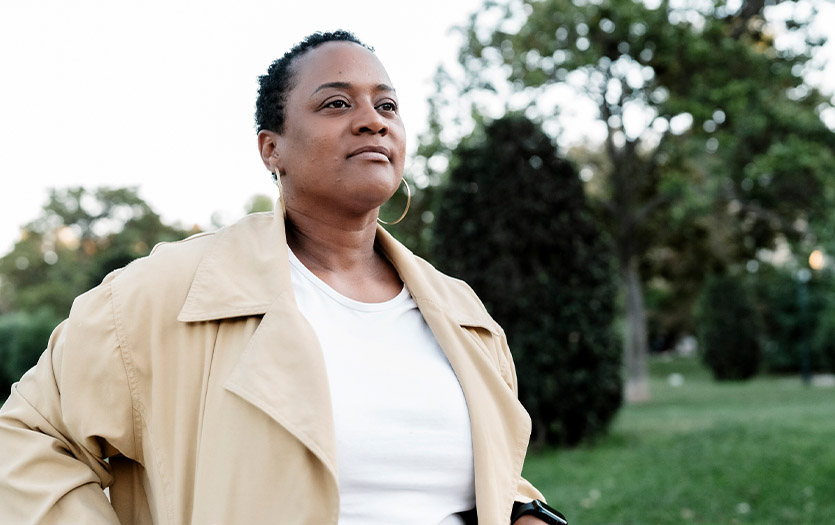
A schizophrenia diagnosis is extremely complex for everyone involved, including the person experiencing the symptoms (patient), medical professionals and family. Matthew Runyan, MD, medical director, PPG Psychiatry Hospital Section, shares more on this concerning condition.
Defining schizophrenia
Most people have heard of schizophrenia. It’s referenced often in pop culture, but what is it?
The definition of schizophrenia is two or more of the following for at least a one-month (or longer) period of time:
- Delusions - thoughts, ideas or behaviors that are not based in reality
- Hallucinations - auditory (hearing), visual (seeing) or tactile (physically feeling) are the most common. They can be pleasant to scary, barely present or commanding someone to do something.
- Disorganized speech - basically they don’t make sense. Words or sentences don’t flow together or skip from topic to topic so rapidly it’s hard to understand them.
- Grossly disorganized or catatonic behavior - moving in slow motion, or not moving at all. Sometimes odd postures or holding limbs stiffly in place for long periods of time.
- Negative symptoms, such as diminished emotional expression - These are the hardest to spot, and treat. Their emotions just go flat, blank. Things that were exciting or anger-inducing just seem meh. Hygiene, eye contact and typically pleasurable activities are usually neglected or appear uninteresting. These symptoms may be mistaken for depression, except for the addition of the other symptoms as above.
The above symptoms must also align with one of the following:
- Impairment in one of the major areas of life for a significant period of time, since the beginning of the disturbance: work, relationships or self-care.
- Some signs of the disorder must last for a continuous period of at least 6 months.
- Other cause of symptoms must be ruled out first, because other illnesses can present with similar symptoms.
Causes
We aren’t entirely sure what causes schizophrenia. There is definitely a combination of genetic, brain chemistry and environmental factors. It appears that there has to be a genetic predisposition and then a second trigger to cause full symptom schizophrenia. Some examples of triggers are stress, hallucinogenic drugs (LSD, MDMA, methamphetamine, and yes, even THC), toxins/drugs in utero, and autoimmune conditions can all cause an episode of psychosis.
What’s happening in the brain
There are some very specific changes that happen. For example, the ventricles, or spaces inside the brain, are significantly larger and the medial temporal cortex, including parahippocampal, entorhinal, and hippocampal cortex, is also reduced in size. None of these are specific to schizophrenia, and clinically there is no imaging or diagnostic test that can declare a diagnosis on its own. An exam by a mental health professional is the only way to definitively reach a diagnosis.
There appears to be a significant change in neurotransmitters, specifically dopamine, glutamate and serotonin. Early hypothesis about schizophrenia specifically blamed these neurotransmitters, but more recent research suggests that glutamate and the hippocampus are most directly involved in the symptoms and cause of schizophrenia.
What is the patient experiencing?
This video does a great job of demonstrating what a person with schizophrenia might be experiencing. Frankly put, it’s terrifying. What they are experiencing seems real, and to them it is. As odd, scary or strange as they may be acting, to them this is normal. Sometimes they know something is wrong. Other times they think they are fine and everyone else is the problem. One of the first things that is typically affected is insight, or the ability for the patient to recognize that there is a problem. This can obviously cause problems as everyone around them sees something wrong and the person experiencing them does not.
Who is at risk?
Anyone who has an immediate family member with schizophrenia is at highest risk, and any additional family member with schizophrenia increases the risk. Maternal illness while pregnant, difficult births and drug use all increase the risk. THC, the active ingredient in marijuana, has been shown to significantly increase the risk of schizophrenia, specifically when used in adolescence/teenage years.
Warning signs
Schizophrenia usually develops in the teenage years, typically between age 15-25 for men and 21-29 for women. It is life-long and incurable, meaning neither doctors nor medication can make it completely go away, but medication and therapy can significantly improve symptoms. People experiencing early symptoms typically start to isolate, display a decreased interest in things they usually enjoyed, display decreased emotional responses, have trouble sleeping, get worse grades or have a negative change in job performance, or other signs of removing themselves from society.
How to help
Talk to them! As shown in the video above, it’s extremely scary to have schizophrenia. Be on their side and make sure they know you want the best for them. Don’t deny that the symptoms are not real, just that it isn’t something that you can see feel or hear. When a patient asks if I believe them, I always respond, “I know it is real to you, and that’s what I want to help with.” Try to get them in treatment somehow, for the problems. Maybe it’s sleep, maybe it’s hallucinations. Focus on what is bothering or upsetting them and offer to get help for that. If they know something is wrong, then pick up on that and try to get them help.
Statistically, people with schizophrenia are drastically more likely to be the victim of violence rather than the cause of violence. Rarely people with schizophrenia will attack anyone or cause damage. It can happen though, so if you or someone you know feels they are in danger, be safe. Call police, leave the area, try to calm them down.
Treatment
Schizophrenia is typically treated with medication and therapy. Therapy such as cognitive behavioral therapy (CBT), has shown significant evidence in helping decrease symptoms as well as improve medication compliance and decrease in hospitalization.
Medication is the main treatment, and typically involves a class of medications known as anti-psychotics. These medications are designed to counteract the neurotransmitter and biological changes that cause the symptoms of schizophrenia. They are highly effective but unfortunately carry some fairly significant side effects. Consult a physician to discuss these medications and side effects as well as potential treatment changes.
Resources
When in doubt, go to the emergency department. However, if someone has an established treatment team, call or schedule an appointment with them if there are issues or questions. If you are concerned you or a family member may have any mental health problems contact the Parkview Access Center at (260) 373-7500 for immediate assistance from a trained mental health professional who can triage and refer for further services.
If you’re looking for more information, both the National Alliance for Mental Illness and Mental Health of America are tremendous resources.



